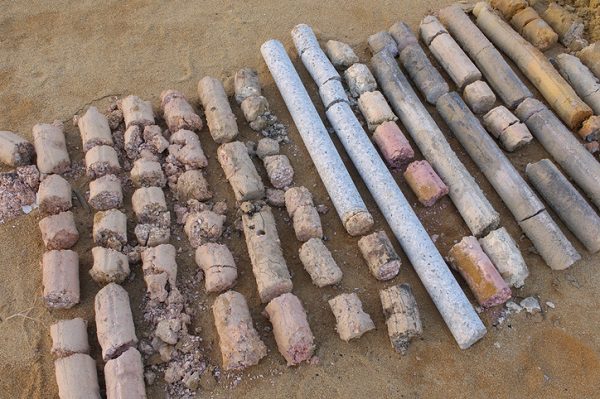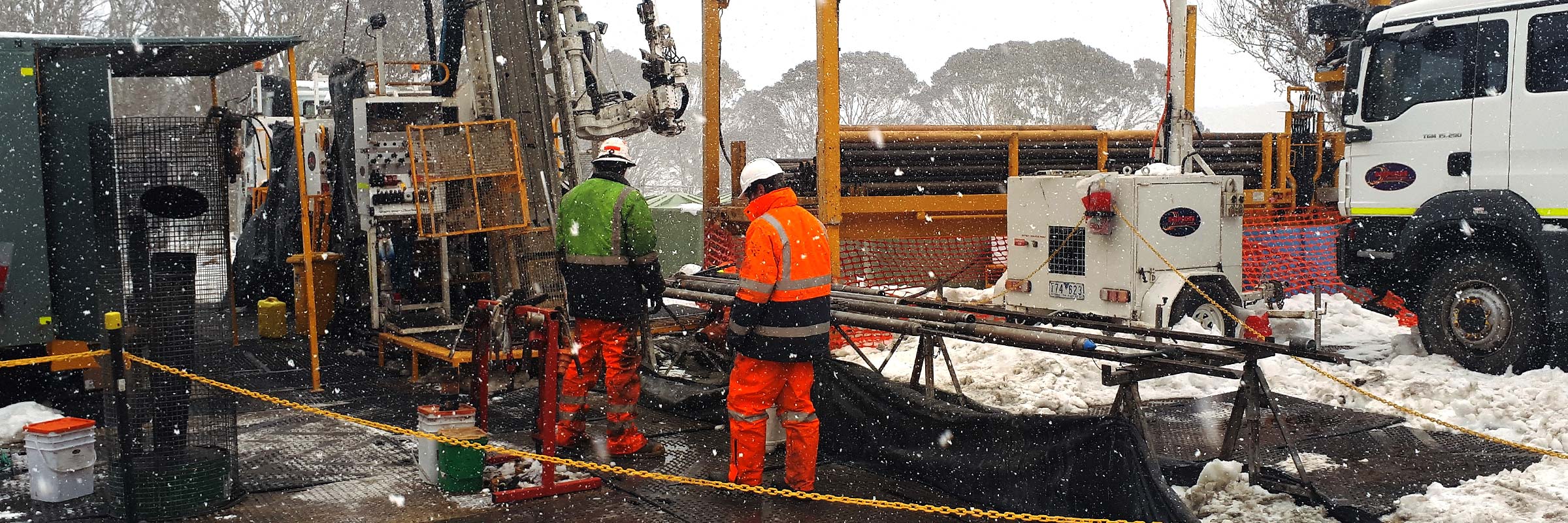The Importance of Geotechnical Engineering in Attending To Ecological Obstacles and Enhancing Building And Construction Safety And Security
Geotechnical engineering functions as a cornerstone in the junction of environmental stewardship and building safety, providing critical understandings right into the habits of soil and rock under various problems. This technique not just addresses pushing environmental challenges such as dirt disintegration and groundwater defense however also enhances the toughness of infrastructure against all-natural risks. By applying tactical website investigations and tailored mitigation steps, geotechnical engineers play an important role in guarding both human lives and environmental integrity. Yet, the complexities of these difficulties raise vital concerns about the future instructions of this field and its ramifications for sustainable growth.

Role of Geotechnical Engineering
Geotechnical design plays an essential duty in the style and building of infrastructure by addressing the actions of dirt and rock materials under various conditions. This area of engineering is important for recognizing the communication between frameworks and the ground, which consists of figuring out the load-bearing capacity of dirt, examining stability, and predicting possible settlement or failing.
Geotechnical designers are accountable for conducting website investigations, which entail sampling and testing soil and rock to gather data on their physical and chemical homes. This information is essential for making foundations, retaining wall surfaces, and other earth-retaining frameworks that guarantee safety and security and durability. Geotechnical design educates the choice of ideal construction techniques and materials, thus decreasing risks connected with dirt behavior.
Additionally, the assimilation of geotechnical engineering principles right into urban planning and ecological monitoring is essential for attending to obstacles such as ground contamination and groundwater management. By comprehending geotechnical variables, engineers can develop sustainable options that boost the resilience of infrastructure against all-natural threats, while also promoting environmental stewardship. Eventually, the duty of geotechnical design is essential for accomplishing risk-free, sturdy, and eco conscious construction methods.
Dirt Disintegration Reduction
Dirt disintegration presents a substantial danger to both ecological security and framework honesty, influencing approximately 24 billion lots of abundant dirt shed every year worldwide. This sensation is exacerbated by aspects such as logging, urbanization, and bad farming methods. Geotechnical engineering plays a critical role in developing effective dirt disintegration reduction methods that protect both the environment and construction projects.
One approach entails the application of erosion control approaches such as vegetation planting, which stabilizes dirt via root systems. Furthermore, the building of retaining terraces and walls can properly minimize surface runoff and shield prone areas from disintegration. Correct drain design is additionally important; it reduces water buildup and guides excess runoff far from vital structures.
In addition, geotechnical engineers use soil stabilization methods, such as the application of geotextiles and biodegradable floor coverings, to enhance soil communication and avoid destruction - geotechnical engineer description. Routine surveillance and evaluation of erosion-prone websites allow prompt interventions, making sure long-term sustainability. By incorporating these strategies, geotechnical engineering not just reduces the effects of dirt erosion yet also adds to the strength of infrastructure versus ecological challenges, eventually cultivating a safer and a lot more lasting built atmosphere
Groundwater Defense Strategies
Groundwater serves as an essential resource for drinking water, agriculture, and commercial procedures, making its protection important for ecological sustainability and public wellness. Effective groundwater security methods are essential in mitigating contamination dangers and making sure the long life of this source.

Normal tracking of groundwater top quality is likewise essential, making it possible for early discovery of contamination sources and assisting in timely remediation initiatives. Employing innovative technologies, such as geophysical studies and remote picking up, aids in recognizing potential dangers to groundwater reserves.
Moreover, public education and learning and stakeholder engagement are vital, fostering neighborhood assistance for groundwater protection efforts. all about geotechnical engineering. By combining regulatory procedures, technical advancements, and neighborhood participation, we can develop a comprehensive framework that safeguards groundwater resources while advertising lasting development and building methods
Landslide Threat Management
Landslides pose considerable dangers to both human safety and security and framework, making effective risk administration methods crucial. Geotechnical engineering plays an essential function in recognizing, analyzing, and mitigating landslide risks. A comprehensive understanding of slope stability, soil mechanics, and hydrology is important for creating effective risk management strategies.
The very first step in landslide threat monitoring entails detailed website examinations, that include geological mapping and dirt screening. These investigations help engineers evaluate the possibility for landslides by recognizing essential variables such as incline angles, dirt structure, and water material. Utilizing advanced modern technologies such as remote picking up and geophysical studies can improve the accuracy of these analyses.
When dangers are identified, appropriate reduction actions can be carried out. These may include design options such as keeping walls, water drainage systems, and slope stabilization strategies. Keeping track of systems should be developed to detect indicators of ground movement and adjustments in water levels, permitting for positive treatments.

Enhancing Building And Construction Safety And Security
Building and construction websites commonly provide a myriad of dangers that can endanger worker safety and task honesty. Geotechnical design plays an important function in improving construction safety and security by giving necessary understandings into subsurface conditions. Via detailed soil and rock analysis, geotechnical designers can determine potential threats, such as dirt instability, groundwater problems, and seismic vulnerabilities, which might jeopardize the safety of building and construction tasks.
Executing geotechnical options, such as proper foundation layout and the use of keeping frameworks, mitigates these dangers dramatically. These services not just ensure the security of the frameworks being constructed but likewise create a much safer working setting for construction workers.
In addition, cultivating a society of safety through training and adherence to established safety protocols even more enhances construction site safety. By integrating geotechnical knowledge into Visit Your URL the planning and execution stages, building and construction tasks can attain greater security requirements, eventually safeguarding workers and ensuring successful task conclusion.
Final Thought
In final thought, geotechnical design serves as a critical self-control in advertising and dealing with ecological challenges building and construction official website safety. With effective soil disintegration mitigation, groundwater security approaches, and landslide risk monitoring, geotechnical engineers contribute to the advancement of resilient facilities.
Geotechnical design offers as a foundation in the junction of environmental stewardship and building safety and security, providing important insights into the habits of dirt and rock under various conditions. Geotechnical engineering educates the selection of proper building and construction methods and materials, consequently decreasing risks associated with soil habits.
Geotechnical design plays a pivotal role in establishing reliable dirt disintegration reduction strategies that protect both the atmosphere and building tasks.
In addition, geotechnical designers employ dirt stabilization methods, such as the application of geotextiles and naturally degradable mats, to improve dirt communication and protect Get the facts against degradation. Through comprehensive soil and rock analysis, geotechnical designers can identify potential threats, such as dirt instability, groundwater concerns, and seismic susceptabilities, which might jeopardize the security of building activities.